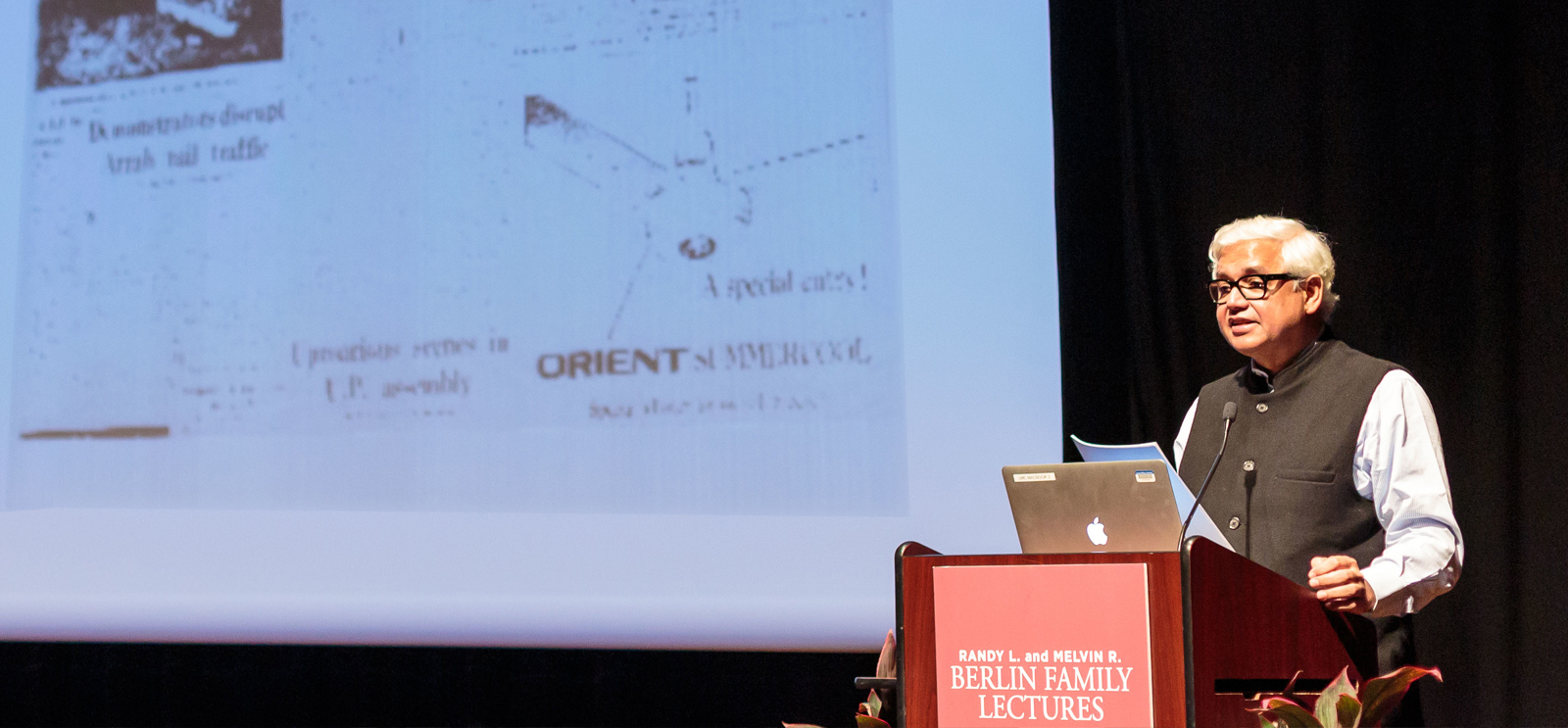
At the Berlin Family Lectures, writer Amitav Ghosh talked about climate change and his native India. (Photography by John Zich)
What we don’t talk about when we talk about climate change.
Amitav Ghosh titled his 2015 Randy L. and Melvin R. Berlin Lectures The Great Derangement: Fiction, History, and Politics in the Age of Global Warming. But the Indian writer might have chosen to call the series The Great Erasure, or The Great Unspoken.
Over the course of four lectures—given September 29 to October 7—he talked about the conversations we don’t have about climate change.
We don’t hear much about its function as a product of capitalism.
We don’t hear the more Asian-focused “alternative history of the carbon economy.” This version includes not just Western standbys like James Watt and James Hargreaves but also Burmah Shell and Mahatma Gandhi.
Gandhi’s ideas on sustainability remain an important part of efforts to address climate change in India today. India is one of the countries that will likely face the most serious consequences of global warming.
Since Ghosh is best known in the United States as a fiction writer, I was interested in what he thought fiction had to do with global warming. Not as much as it should, it turns out.
As often as climate change comes up in news reports and casual conversation, it’s rarely treated in fiction, Ghosh pointed out, except in apocalyptic sci-fi: “Why does climate change cast a smaller shadow on fiction—what is regarded as ‘serious fiction’—than it does on the rest of the world?” And at what cost does this erasure come?
Ghosh’s 2005 novel The Hungry Tide takes place in the Sundarbans, an archipelago in the Bengal Delta that is vulnerable to rising seas.
But the book isn’t about climate change. The dangers didn’t really hit home for him until December 2004—a few months after he’d finished writing—when a tsunami in the Indian Ocean killed thousands of people. Today Ghosh calls global warming “the single greatest threat that humanity has ever faced.”
The Hungry Tide climaxes in a massive storm that strands two of the main characters, Fokir and Piya, and threatens their lives. Like Piya and Fokir, Ghosh warns, we are all in the path of the storm.
Video
In the first lecture of the 2015 Randy L. and Melvin R. Berlin Family Lecture Series, renowned author Amitav Ghosh explores the impact of global warming and climate change on fiction.
